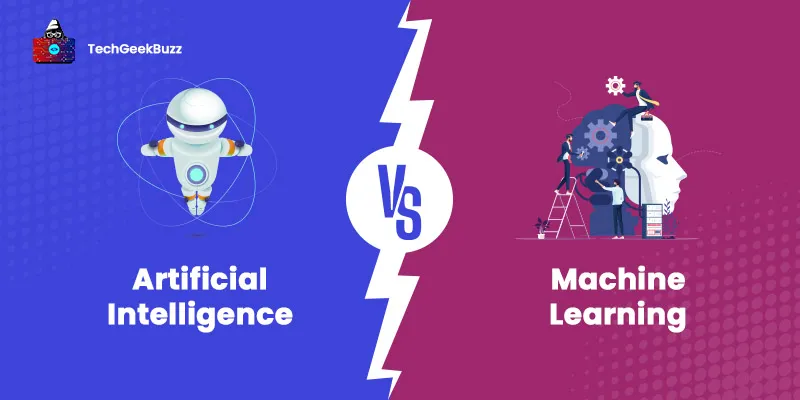Until sometime back, everyone was using one fancy term – data scientist, which became the most widely used and highly paid job in the IT industry. As the demand for data analysis increased, so did the responsibilities, and that is when the concept of a machine learning engineer arose.
What is machine learning?
Simply put, it is a branch of AI that enables machines to think on their own and make decisions. Machines learn through data and past experiences and create models that analyze the data to make sense. The models are created using various algorithms based on the type of problem faced. The machine iteratively trains and tests the model to improve its performance in predicting various business outcomes.
Read more about Machine Learning .
Who is a machine learning engineer?
Machine learning engineers are purely technical persons who deal with creating new algorithms or tweaking existing algorithms to solve a problem. You can say that ML engineers are software engineers with specializations in machine learning. They can train the machines to learn and find patterns in the data or write code that helps machines learn by themselves. These engineers can bring more to the ML and AI platform each day and enhance machines' capability.
ML is vast and has more potential to grow, and that is why machine learning engineers are in high demand. In fact, the demand for ML engineers is more than that of data scientists and has increased ten folds over the past eight years. As per the analysis from Indeed, a machine learning engineer typically earns about $146,085. An entry-level ML engineer earns up to $98000.
The popularity of machine learning engineer
If you wish to learn about Data Scientist Roles and Responsibilities , read our detailed article. The article will give you some clarity on the job of an ML engineer. ML is one of the many steps in the data science lifecycle , specifically data analysis. ML engineers gained the most popularity between 2018-2019.
The main reason for this is that many companies are now data-driven and depend on machine learning and AI for their data initiatives. Because of data-driven decision-making, machine learning algorithms are coming in handy for these engineers to work on, customize, or tweak the algorithms to suit their particular problems. These engineers are purely technical and can quickly start working on the analysis, model creation, and testing to create accurate algorithms.
Another reason is that with the technical know-how they possess, most ML engineers can also handle the business aspects of a problem – i.e., they can pitch in for a data scientist's role. However, vice versa is not possible, especially when the data scientist is not from a coding background.
Data Scientist vs. Machine Learning Engineer
Having said the above, a data scientist has a lot on their plate compared to an ML engineer. They see the bigger picture and know the end-to-end cycle of a problem – from defining the problem to making a decision that best solves the problem. Here are some differences between the roles and responsibilities of a data scientist and ML engineer:
| Data Scientist | Machine learning engineer |
| They define a business problem and gather data | They do not have involvement in the initial phases of data science |
| A data scientist’s job involves cleaning and removing errors from unstructured data to make the analysis unbiased | An ML engineer always receives cleaned and organized data |
| Looks for an overall solution and the big picture | Involved in the in-depth analysis of datasets through detailed solutions, usage of new technologies, etc. |
| Prepare reports, charts, and other visualizations to show to the stakeholders | Developing prototypes to be shown to all the stakeholders |
| Not much involved in the technicalities of machine learning models and their implementation | Their main job is to use the best technologies to build models and test them thoroughly so that they reach the desired accuracy |
From the above distinction, it is clear that a data scientist need not necessarily be a technical person. But, it needs good business and domain knowledge other than a good command of data analysis techniques . In contrast, ML engineers should be technically sound, and having business and domain knowledge is a definite advantage.
Career Paths for an ML engineer
There are three different paths an ML engineer can take:
- ML software engineer: for this role, you should be thorough with computer science basics, programming, system design and development, and software engineering architecture.
- Applied ML engineer: Focuses on using machine learning frameworks, libraries, and algorithms to build a model. Needs a thorough understanding of programming concepts as well.
- Core ML engineer: This role requires the skills of both ML software engineer and applied ML engineer along with the understanding of data modeling and evaluation.
What does a Machine Learning Engineer do?
In practical terms, a machine learning engineer's role is close to that of a data scientist. Both roles work with vast quantities of information and require exceptional data management skills and the ability to perform complex modeling on dynamic data sets. Machine learning engineers typically include the following:
- Advanced degree in computer science, math, statistics, or a related discipline
- Extensive data modeling and data architecture skills
- Programming experience in Python, R, or Java
- Background in machine learning frameworks such as TensorFlow or Keras
- Knowledge of Hadoop or other distributed computing systems
- Experience working in an Agile environment
- Advanced math skills (linear algebra, Bayesian statistics, group theory)
- Strong written and verbal communication.
Roles and Responsibilities of a machine learning engineer
In the previous section, we briefed about an ML engineer's role, which is a gentle amalgamation of software engineering and data science. This section will go into detail about what a machine learning engineer is responsible for.
- Choose the right algorithm for a given data science problem.
- Design and develop machine learning systems based on the problem at hand
- Research and find out new technologies to successfully create, train, and test new models.
- Perform tests and statistical analysis repeatedly to improve accuracy
- Able to tweak the existing algorithms efficiently or create new ones based on requirements
- Extend existing frameworks and libraries to suit specific requirements
- Be able to show and explain prototypes to data scientists and stakeholders effectively.
- Keep oneself updated on new technological trends and best practices.
Skills required to become a machine learning engineer
You can’t gather all the skills from day 1. ML engineer’s job is challenging and exhausting, and you can master it only with experience. However, as an entry-level ML engineer, you should possess some mandatory skills:
- Solid understanding of data structures, algorithms, SDLC, and data modeling
- Thorough knowledge of core concepts of statistics, math, probability
- Understanding of deep learning and AI technologies
- Proven experience with programming languages like Java, R, Python, C++, Scala
- Knowledge of a few ML frameworks like TensorFlow, Keras, PyTorch, etc.
- Analytical thinking, problem-solving attitude
- Able to use libraries like scikit-learn, mlpack, Theano, etc.
- Excellent communication skills; ability to work in a team
Some Helpful Courses and Resources to start
Many courses cover basic as well as advanced concepts of each skill. You can take up specializations that take care of all the skills you need or take up individual courses. Here are some excellent courses and tutorials that will help kickstart your journey as an ML engineer:
- Professional Certificate program in ML and AI from MIT
- Machine learning from Stanford University
- Become a machine learning engineer
It will help if you read the articles 12 things I learned as an ML engineer and What’s the Machine Learning Engineering Job Like to know some successful machine learning engineers' first-hand experience. Some helpful books that can help you gain technical knowledge:
Note that the last two books are e-books available for free.
Conclusion
Machine learning and AI seem to be the fields with a lot of scope and demand in the future. Even as we talk, ML is being used in so many industries like healthcare, e-commerce, finance, etc., and the prominence of machine learning will be seen more in the years to come. Therefore, ML engineers will be more in demand as more companies mine data and try to make sense of it. These engineers have to keep up-skilling themselves to stay put.
Start learning today to build your dream future in the next ten years!
People are also reading:
- Best Machine Learning Interview Questions
- Best Machine Learning Frameworks
- Machine Learning Books
- Machine Learning Projects
- Classification in Machine Learning
- AI vs. ML vs. Deep Learning
- Machine Learning Applications
- Machine Learning Algorithm
- Data Science vs. Machine Learning
- Decision Tree in Machine Learning





Leave a Comment on this Post